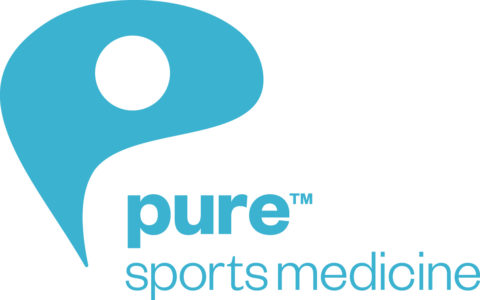Spotlight on Pure Sport Medicine
Published on Oct 28, 2020
We’re delighted to have recently launched our Lunchtime Wellbeing Series earlier this month, kicking off our programme of events with an Online Yoga Class.
Over the coming months, we’re inviting you to a series of virtual sessions designed to help you look after your mind and body, hosted by world-class sport and exercise medicine specialists, Pure Sports Medicine.
From interactive Pilates and Yoga sessions to a mental health webinar, we’ve put together a calendar of events that will get you moving and thinking during your lunch break.
We caught up with Simon Devane, Chief Executive of Pure Sports Medicine, to find out more about the wellbeing sessions and the team behind them.
Great to meet you, Simon! Could you tell us a little about the vision and ethos of Pure Sports Medicine?
Pure Sports Medicine (PSM) was established by taking the healthcare model that worked in elite and professional sport and integrating this with global best practice from other countries, to deliver a fully comprehensive and patient-focused service. We offer support in all aspects of Sport, Exercise and Musculoskeletal (MSK) Medicine here in the UK – in lay persons terms, we are a one stop shop for all MSK conditions up to, but not including, surgery – we refer on to our trusted partners for that.
How did you operate prior to the pandemic, and what has had to change as a result of the current situation?
Prior to the pandemic we operated 7 clinics across London, supporting patients and clients with a face-to-face service delivery. The pandemic and change in working patterns has meant that while the majority of appointments are still being delivered in clinic across our 7 sites, there are a number of consultations and classes delivered via video link. The willingness of consumers to access healthcare services remotely means we are no longer geographically bound by our physical clinic locations.
Have there been any new ways of working that you think will stay in place in future?
‘Telemedicine’: while the delivery of healthcare services via telephone and video has been around for a while, the scale with which it has been adopted and accepted by both consumers and clinicians has meant we have seen a significant change in the sector, fast forwarding a relatively slow organic change by 3-5 years.
How do you think the pandemic (and the consequent lockdown) has affected people’s mental health and wellbeing?
I think we are only beginning to appreciate the impact on people’s mental health and wellbeing. Personally I am concerned at the potential scale of the problem – we all need to take an active role in supporting one another, alongside businesses playing their part and ensuring employees are well supported and know where to go for help and support.
What are your top tips for staying healthy and happy at home?
Have a routine, make sure it’s not all work and you make time to enjoy yourself. Get outside and integrate some level of activity into your day or week.
What would you say to someone who is finding it difficult to stay motivated due to the current climate?
Looking after yourself both mentally and physically is vital. Stay active, eat well and do everything else in moderation – find things that make you happy or you enjoy doing and make sure these are integrated into your day. Many people I have spoken to have found motivation has ebbed and flowed during this pandemic, I think understanding this is completely normal and talking about it with someone you trust can help.
Are you working from home yourself? What does your average day look like?
I am travelling into our head office and working from home. My average day remains consistent as I like and need my days to be structured, I get up at 6am regardless of whether I am WFH or going into the office, I use the early mornings to spend time with my three children over breakfast before they depart for school and start my day between 08:00-08:30.
What can participants expect from our Lunchtime Wellbeing Series with you?
Participants should expect to be engaged, enlightened, and empowered. Education is a key part of helping individuals deal with any kind of health or wellbeing problem – understanding the issue helps you feel in control of things usually because you understand what you can do to help yourself.
These sessions will provide information in lots of different ways – some of it through lectures and information, some through teaching different exercises that can help prevent and manage problems and some by providing life and work hacks that you can implement for yourself. People often put up with pain and problems either because they don’t know who to see for help and advice or they don’t think there is anything that can be done. Neither is usually true. At the end of this series, participants should feel healthier and happier.
